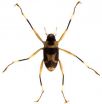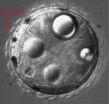(Press-News.org) A new study has shown that racehorses are extremely sensitive to changes in daily light and, contrary to humans, can adapt very quickly to sudden shifts in the 24-hour light-dark cycle, such as those resulting from a transmeridian flight, with unexpected benefits on their physical performance.
The research led by academics in the University of Bristol's Faculty of Medical and Veterinary Sciences is published in the Journal of Neuroendocrinology.
This is the first study of its kind to investigate the effects of jetlag on the physiology and performance of racehorses under tightly controlled experimental conditions. Horses are the only athletes, apart from humans, regularly flown across time zones for athletic competitions.
Dr Domingo Tortonese, Senior Lecturer in Anatomy in the School of Veterinary Sciences, who led the study, said: "We tested the hypothesis that abrupt alterations in the 24-hour light-dark cycle, such as those associated with the crossing of time-zones, would alter the molecular clockwork and neuroendocrine systems of racehorses with detrimental consequences on their athletic performance.
"In humans, air travel-associated sudden changes in the 24-hour light-dark cycle disrupt biological rhythms with negative effects on cognitive and physical performance. Indeed, jetlag has important implications for athletes who travel across time zones for competitive sporting events, particularly after an easterly flight.
"Our study shows that racehorses are different from humans in that they rely on light cues for their daily rhythms of activity, rather than for the synchronisation of an endogenously generated rhythm to the 24-hour light-dark cycle. This light dependency underlies a rapid process of adaptation with critical scientific implications and unexpected practical benefits."
Thoroughbred horses with previous race training were housed in light-controlled rooms and put through a fitness program of daily sessions of exercise on a high–speed treadmill at variable times of the day for three months. They then experienced a shift in the 24-hour light-dark cycle that mimicked an easterly flight across seven time zones.
The 24-hour patterns of four clock genes, together with neuroendocrine systems involved in a variety of functions, including time measurement, homeostasis and the response to stress, were investigated before and after the shift. The aerobic and anaerobic capacities were measured by standardised performance tests. Locomotor activity was also assessed continuously, under photoperiodic conditions and in the absence of light cues (constant darkness), to determine the expression and robustness of a 24-hour rest-activity cycle. The speed of re-adaptation to a new light-dark cycle was also investigated.
Contrary to the prediction based on human and rodent data, the results show that whereas horses are extremely sensitive to sudden changes in the 24-hour light-dark cycle, they can adapt very quickly to a phase shift. Importantly, this rapid adaptation is not accompanied by an increase in the level of stress, but by alterations in endocrine systems that favour an enhancement of the horse's physical capacity during the process.
The improvement in athletic performance following experimental jetlag resulted in the animals being able to run at full gallop for an additional 25 seconds before reaching fatigue. This differs from humans who show a slow adjustment, particularly after an eastbound flight, with detrimental consequences on performance. The difference between the two species can be attributed to the powerful masking effect of light on the horse's daily locomotor activity, which, together with the absence of a robust sleep-wake cycle, can be a part of a mechanism of adaptation to sudden changes in the environment.
The results of this study have important practical implications, since equine athletes do not need to travel to be subjected to changes in daily light, and its beneficial consequences could help to reduce the level of injury in competitions.
INFORMATION:
The research by the University of Bristol in collaboration with academics from the University of Melbourne and the University of Cambridge was supported by a research grant from the Horserace Betting Levy Board and by a Wellcome Trust Equipment Grant.
Paper: Experimental jetlag disrupts circadian clock genes but improves performance in racehorses after light-dependent rapid resetting of neuroendocrine systems and the rest-activity cycle, Tortonese D J, Preedy D F, Hesketh S A, Webb H N, Wilkinson E S, Allen W R, Fuller C J, Townsend J, Short R V. Journal of Neuroendocrinology, published online ahead of print, 15 September 2011.
END
Despite substantial reductions in the hospital death rates for heart attack patients across all age groups, there are still worrying inequalities in heart attack management for the elderly, a new study has shown.
The research, carried out by the University of Leeds, UK and funded by the British Heart Foundation, showed that the risk of a heart patient dying in hospital almost halved across all age groups between 2003 and 2010. Specialist treatments – such as coronary angioplasty – to open blocked or narrowed arteries that supply blood to the heart are also much more widely ...
The research program AQUA Palawana has been exploring the unique freshwater biodiversity of the Philippine Island and biosphere reserve of Palawan for more than a decade. Scientists from the Senckenberg Museum of Zoology Dresden and the Bavarian State Collections of Zoology in Munich have now described larvae and a new species of the curious Spider Water Beetles (Ancyronyx) from this biodiversity hotspot. Their study was realized in cooperation with the Palawan Council for Sustainable Development and the De La Salle University Manila.
The scientists conducting this study, ...
The relationship between personal injury law and workers' compensation law requires careful explanation.
The New Jersey Superior Court, Appellate Division's decision in McDaniel v. Lee shows how the court applied the State's Workers' Compensation Act in a motor vehicle accident case to bar a third-party lawsuit against the plaintiff's co-worker. This is known as the fellow-servant rule, which provides an injured employee's co-workers with immunity from personal injury lawsuits. Although workers' compensation claims are handled differently than personal injury lawsuits, ...
As planktonic organisms the larvae of the marine annelid Platynereis swim freely in the open water. They move by activity of their cilia, thousands of tiny hair-like structures forming a band along the larval body and beating coordinately. With changing environmental conditions the larvae swim upward and downward to their appropriate water depth. Scientists of the Max Planck Institute for Developmental Biology in Tübingen, Germany have now identified some signalling substances in the larval nervous system regulating swimming depth of the larvae. These substances influence ...
DURHAM, N.H. – Persistent high poverty is most prevalent among children, with those living in rural America disproportionally impacted, according to researchers from the Carsey Institute at the University of New Hampshire.
"Nearly 22 percent of America's children live in poverty, compared with 14 percent of the total population. Poverty is scattered and geographically concentrated, and it ebbs and flows with economic cycles. However, in some parts of the country, poverty has persisted for generations," the researchers said.
Areas with persistent high child poverty are ...
When you are in debt and fail to make timely payments, creditors may take steps to collect money directly from your paycheck. Known as wage garnishment, this legal tool can take a substantial bite out of your earnings.
The Wage Garnishment Process
Before wage garnishment occurs, a court must authorize it. A creditor will ask for a court order to compel payment. If you have stopped repaying the debt, the court can issue a judgment against you.
Next, the creditor will place the judgment and an accompanying garnishment order in the hands of your local sheriff's department. ...
Many Americans do not have access to a "medical home"—a physician practice that is able to manage ongoing care for patients and coordinate care among specialists and other health care facilities, according to a University of Michigan Health System-led study.
The study revealed that nearly half (46%) of physician practices do not meet national standards to qualify as a medical home.
"Our study findings are particularly worrisome because the medical home model of care is seen as providing higher quality, more cost-efficient care" said John Hollingsworth, M.D., M.S., the ...
CAMBRIDGE, Mass. -- The ability to see through walls is no longer the stuff of science fiction, thanks to new radar technology developed at MIT's Lincoln Laboratory.
Much as humans and other animals see via waves of visible light that bounce off objects and then strike our eyes' retinas, radar "sees" by sending out radio waves that bounce off targets and return to the radar's receivers. But just as light can't pass through solid objects in quantities large enough for the eye to detect, it's hard to build radar that can penetrate walls well enough to show what's happening ...
The Supreme Court of California recently denied plaintiff Rebecca Howell full compensation for her medical expenses from Hamilton Meats & Provisions, the company whose truck struck Hamilton's vehicle while making an illegal u-turn.
As a result of the accident, Howell suffered through two spinal surgeries, among other medical treatments. The initial bill for her medical expenses came to almost $190,000. Fortunately, Howell had the foresight to purchase health insurance to cover unforeseen medical costs like these, but doing so denied her almost $130,000.
It turned ...
Cyber war, long considered by many experts within the defence establishment to be a significant threat, if not an ongoing one, may never take place according to Dr Thomas Rid of King's College London.
In a paper published in The Journal of Strategic Studies, Dr Thomas Rid, from the Department of War Studies, argues that cyber warfare has never taken place, nor is it currently doing so and it is unlikely to take place in the future.
Dr Rid said: 'The threat intuitively makes sense: almost everybody has an iPhone, an email address and a Facebook account. We feel vulnerable ...

